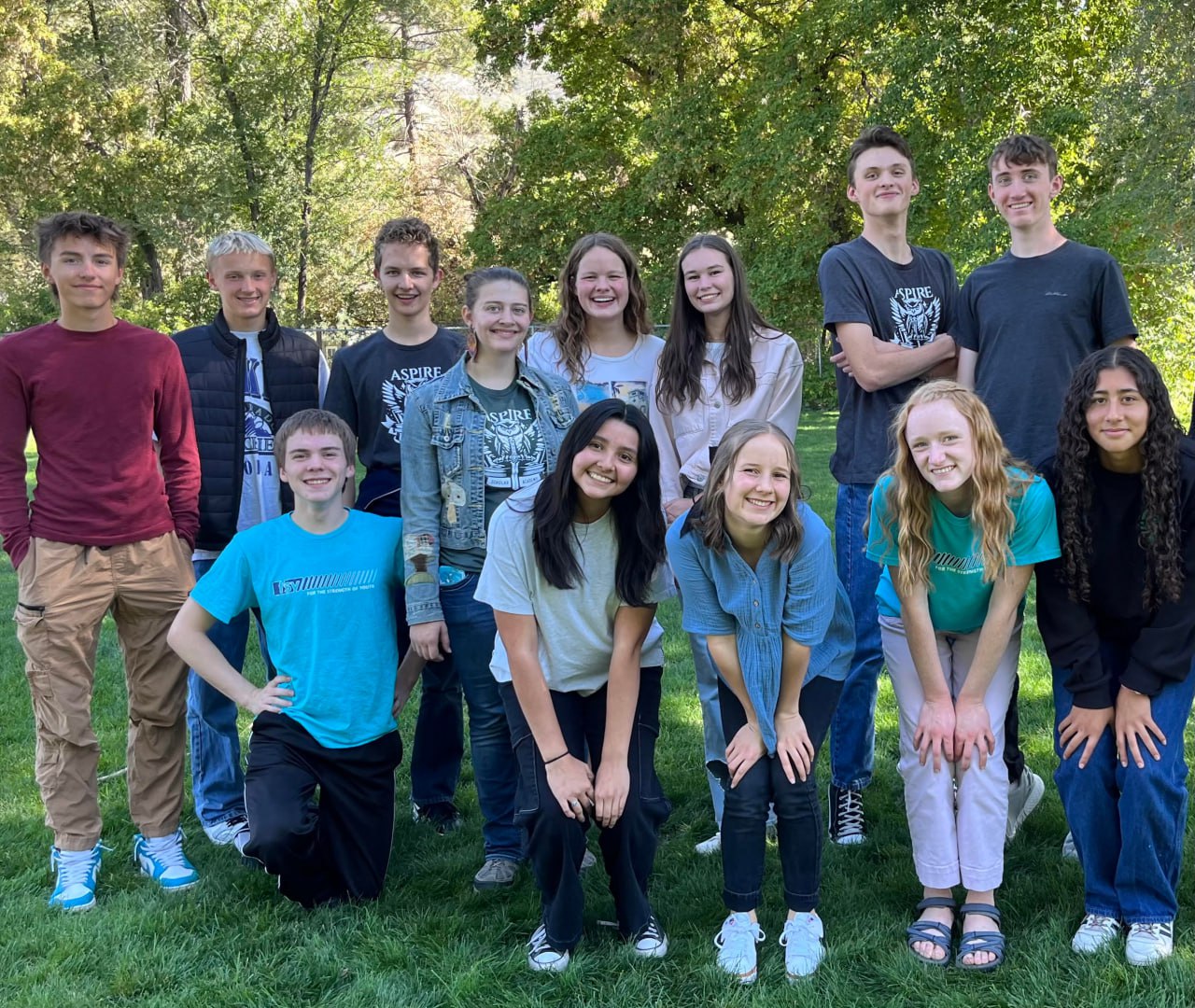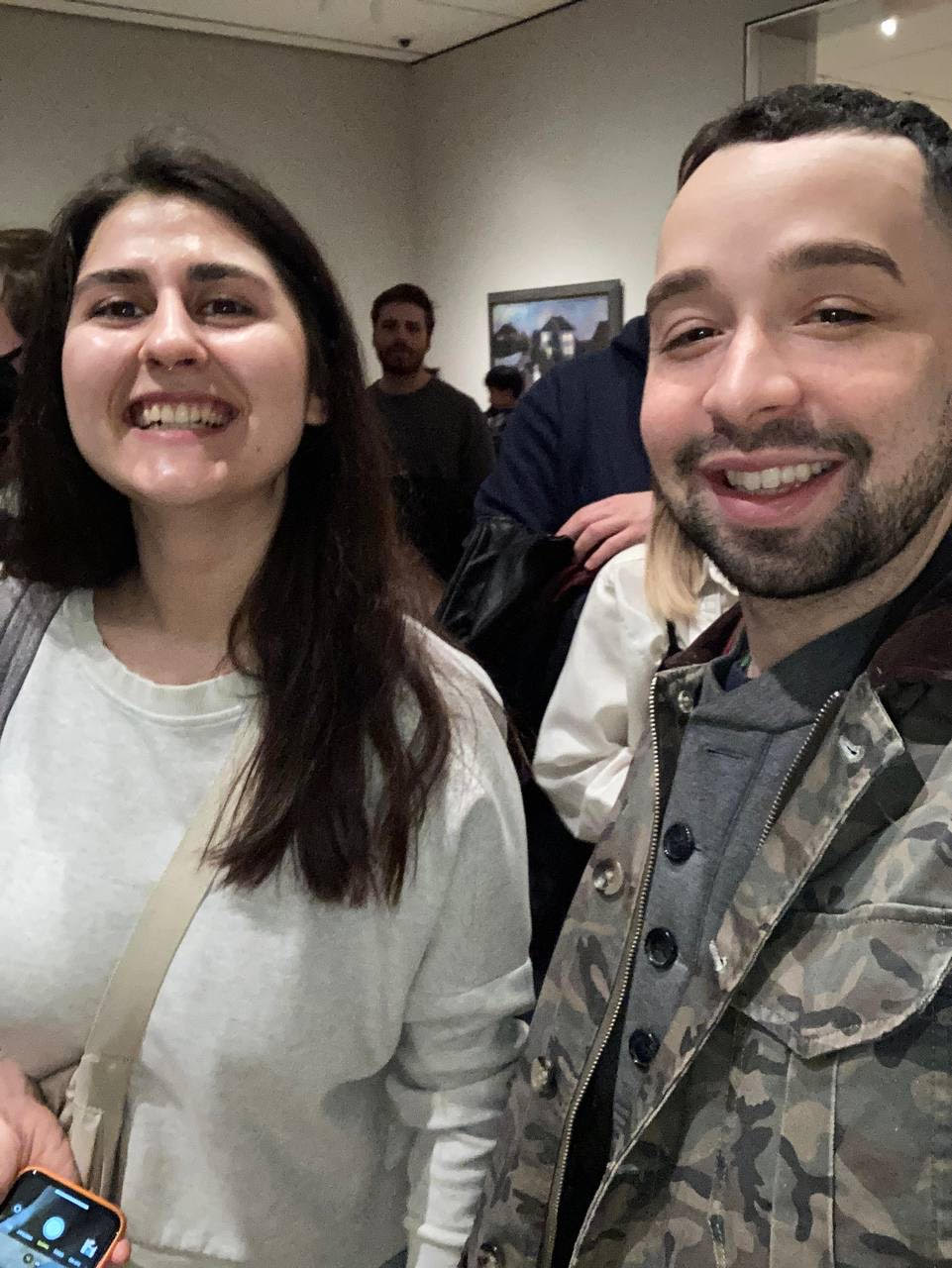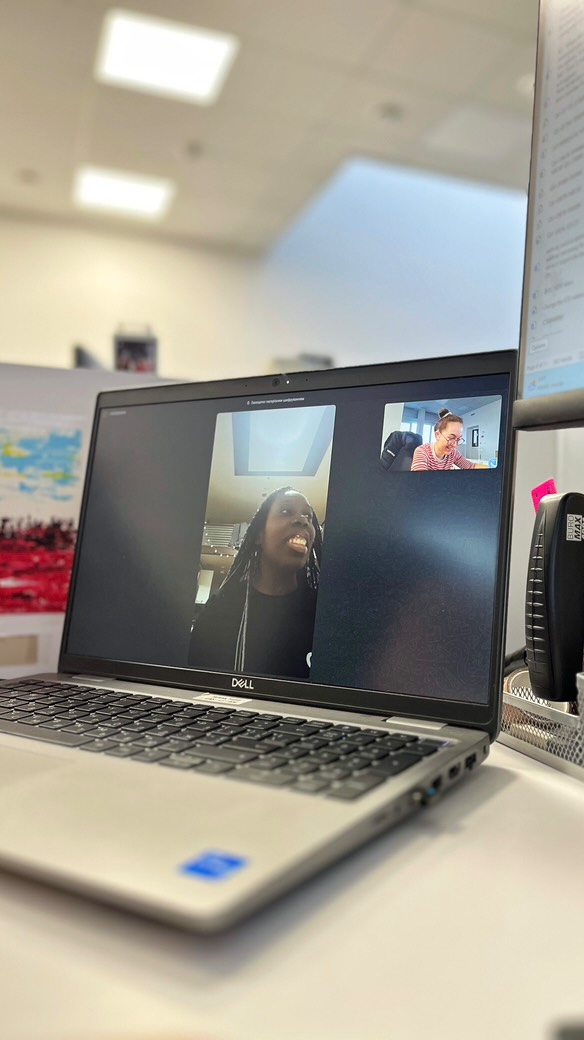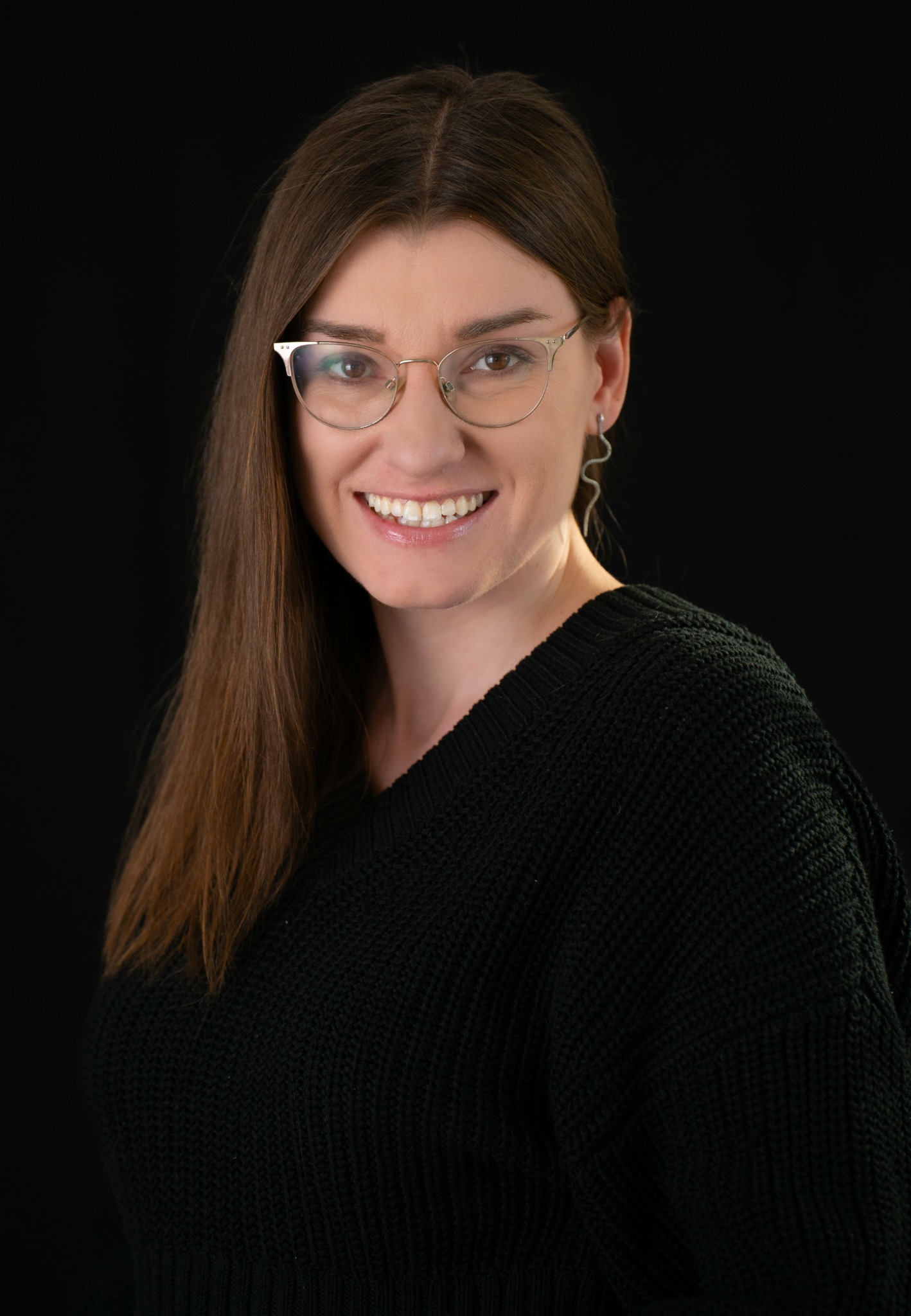We’re excited to introduce you to the always interesting and insightful Katerina Manoff. We hope you’ll enjoy our conversation with Katerina below.
Katerina , looking forward to hearing all of your stories today. Let’s kick things off with a hypothetical question – if it were up to you, what would you change about the school or education system to better prepare students for a more fulfilling life and career?
I firmly believe that bringing quality education to every learner WITHOUT REMOVING THE HUMAN TOUCH is the most important change we can make to our education system. Think back to your education – formal or informal. I’ll bet that a human being was at the center of your greatest successes and breakthroughs. A passionate teacher, a mentor, or even a peer. For me, it was Madelyn, a volunteer who practiced English with me at age 8, when I was a terrified brand-new arrival to the United States. It was Ms. Foster, a high school teacher who nurtured my love of writing. It was my colleague Julia, who showed me how to be a great boss and leader.
Thousands of organizations large and small have taken on the challenge of improving the education system. Some tackle the issue from within – government initiatives, universities, and even individual teachers and principals. Others are outsiders working to disrupt the system – edtech startups, nonprofits, charter schools.
However, nearly all of these interventions choose between human-centered learning and wide access. Programs that offer a human connection are generally selective – they help a small group of the best, most motivated, or neediest learners. Think prestigious STEM or magnet programs, charter school lotteries, summer programs for underprivileged students, and so on. These programs are expensive to administer, so financial constraints prevent them from reaching most learners.
Conversely, interventions that try provide access to all do so by removing the human element from the learning experience. In other words, instead of an intensive (and expensive!) small-group tutoring program for 200 kids, you might have free or cheap math tutoring software for 200,000 kids. Think Khan Academy, Duolingo, etc.
But why do we have to choose? Why can’t we imagine a a cost-effective intervention that also preserves the human connection that is so essential to learning?
This is exactly what we are trying to do at ENGin. Our program is open to virtually everyone – no deadlines, no limits, no high costs. At the same time, 1-on-1 human interaction is at the core of the ENGin experience. We are among the first organizations anywhere to create a scalable, low-cost, human-centered education program and grow it to tens of thousands of participants.
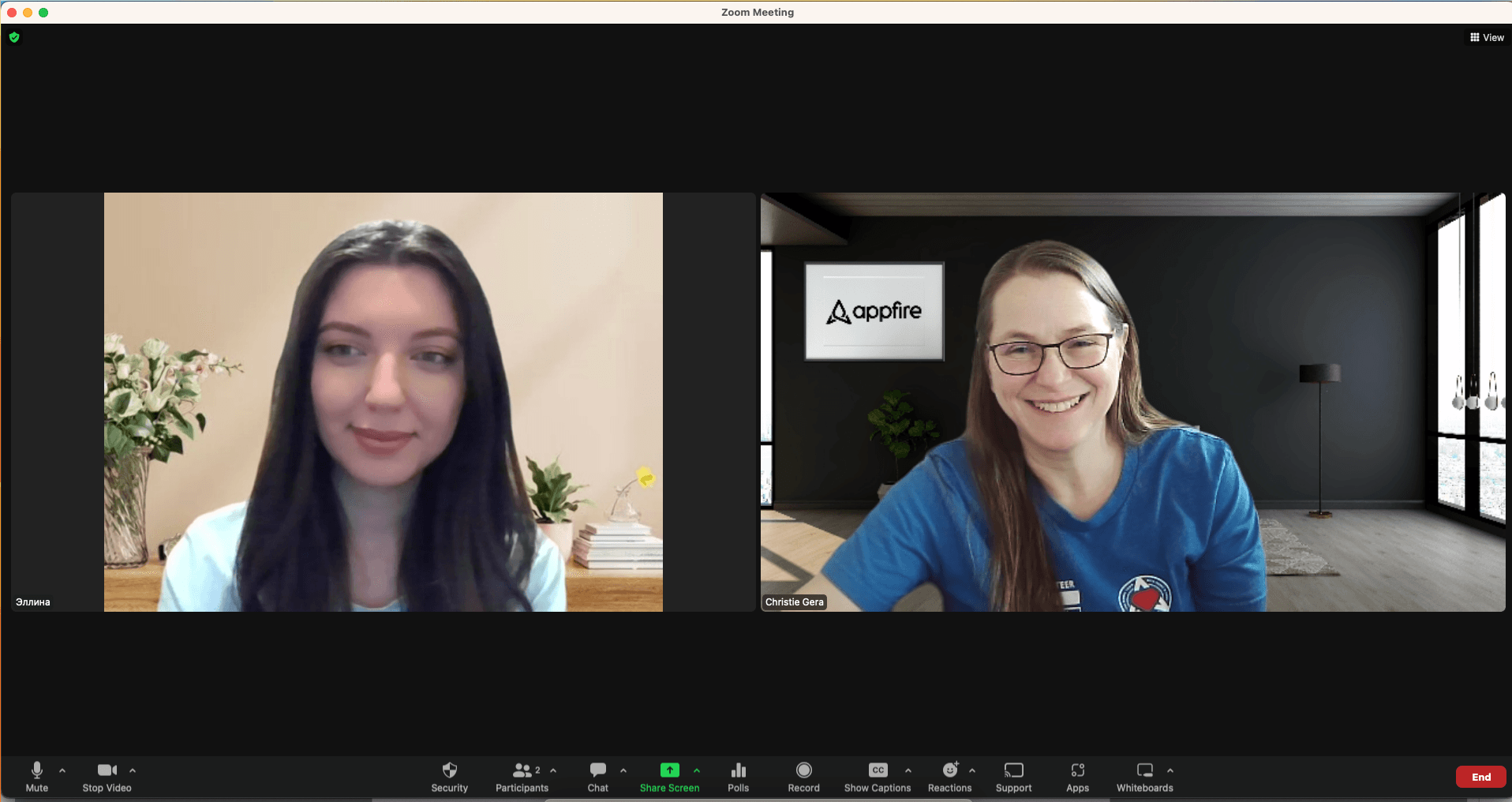
Katerina , love having you share your insights with us. Before we ask you more questions, maybe you can take a moment to introduce yourself to our readers who might have missed our earlier conversations?
Hi, I’m Katerina, a Ukrainian-American with 15 years of experience in education, technology, and finance. Five years ago, I launched a small project that grew beyond my wildest dreams, to a $1 million budget, a team of 35, and nearly 55,000 participants.
ENGin is a global nonprofit founded on the belief that authentic English-language connection across borders changes lives. Our program pairs English-speaking volunteers with English learners in emerging democracies for weekly videochat conversations.
We create a safe, authentic space for learners to break the language barrier, discover a new culture, and find emotional support. Volunteers benefit as well, building cross-border relationships, learning about students’ countries, and honing their communication skills.
We are currently piloting our model in Ukraine and have served over 53,000 participants to date. In future, we aim to connect over a million globally-minded citizens of emerging democracies with English speakers in the US and worldwide, forging supportive, authentic relationships, building a foundation of English fluency, and opening doors to academic and professional opportunities. Taken together, a million incremental improvements in participants’ lives will catalyze economic and social development at a national scale.
ENGin was founded as the first-ever organization to scale virtual 1-to-1 connections to hundreds of thousands of people in order to effect nationwide change. We turn the typical nonprofit model on its head. The vast majority of interventions target the best, the smartest, or the most disadvantaged. Selective application processes, deadlines, and rejections are par for the course. I am building a program for all – no limits necessary, as we just keep growing to accommodate anyone who is interested.
ENGin unlocks tremendous value with a low-cost, light-touch intervention. Simply by connecting two people and offering the necessary supports/resources, we can have a huge impact on two lives.
Another unique aspect of ENGin is that we’re operating at the most individual, personal level (1-on-1 connections) to create change on a nationwide, even global scale. This is extremely difficult work – even 5 years after launch, ENGin has no peers or competitors – but the potential is endless.
We’d love to have you join our movement! You can learn more about ENGin at www.enginprogram.org.
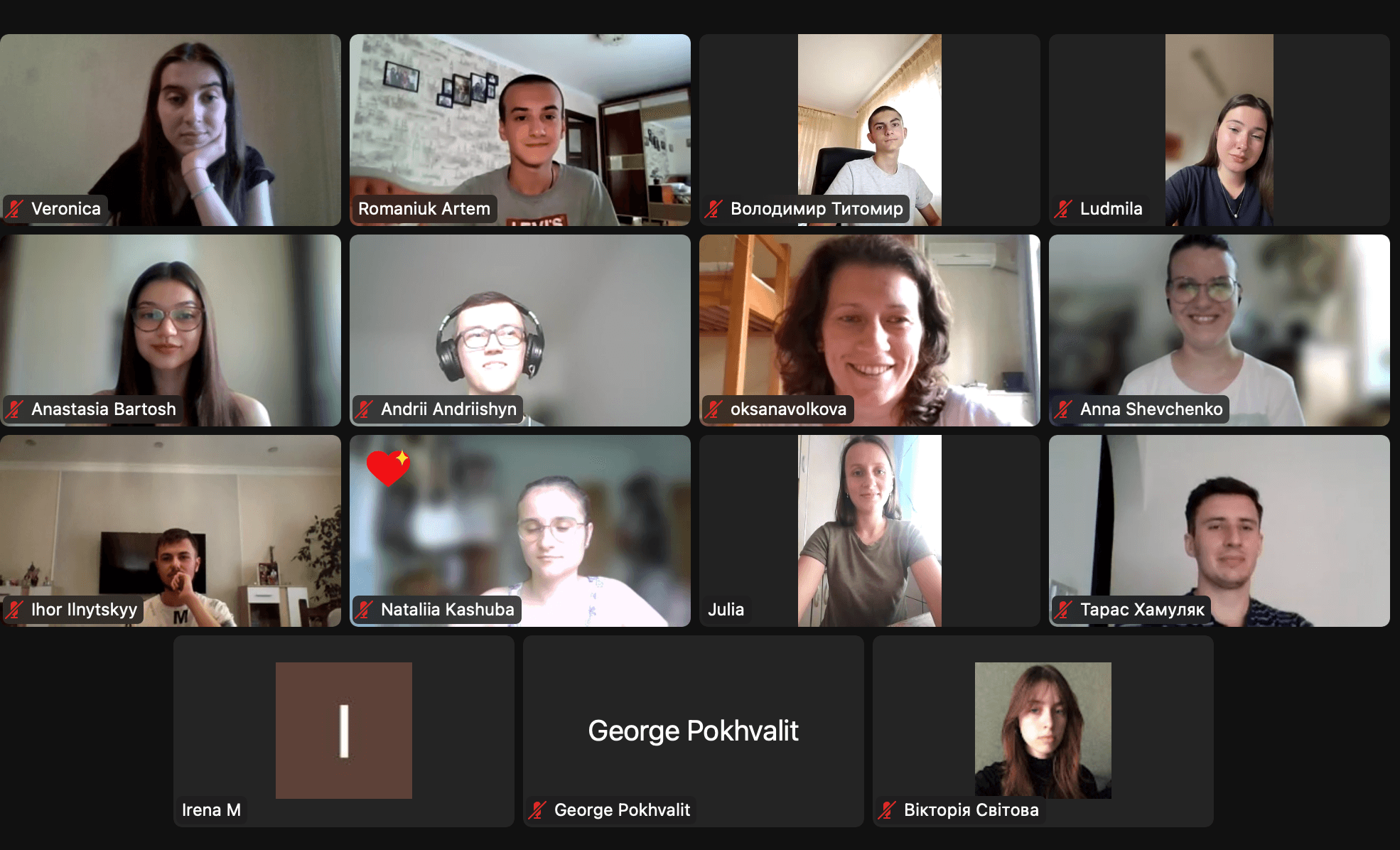
Can you open up about a time when you had a really close call with the business?
On February 24, 2022, russia launched a full-scale invasion of Ukraine. At the time, all of the students we served were in Ukraine, as was the majority of our team. In an instant, I became a wartime CEO.
The first days were a matter of survival. Pause the program; send students words of encouragement and practical information on safety, evacuations, first aid. Check in with every team member; support them as they evacuated or stayed put.
Then, it was time to tackle the bigger question. Should ENGin stay open? Did conversations, English practice, and cultural exchange still matter against a backdrop of bombs, torture, and so much death?
I went to the source – our students and team members in Ukraine. Almost unanimously, they indicated that they wanted to keep going – that continuing the program was a way to resist the enemy.
But of course, staying open did not mean business as usual. In the subsequent months, we made many adjustments – from extra volunteer training on how to work with students experiencing trauma to opening the program to refugees who had to leave Ukraine due to the war to asynchronous curriculum materials for when videochat was impossible due to russian attacks.
And amongst all the hardships, I found an opportunity that redefined and improved the program. Before the war, we were limited to serving high school and college students, despite high demand from adult English learners in Ukraine. The war made it possible for us to recruit adult volunteers due to new interest in supporting Ukrainians, vastly expanding access to our program. Today, the majority of our volunteers and students are adults.
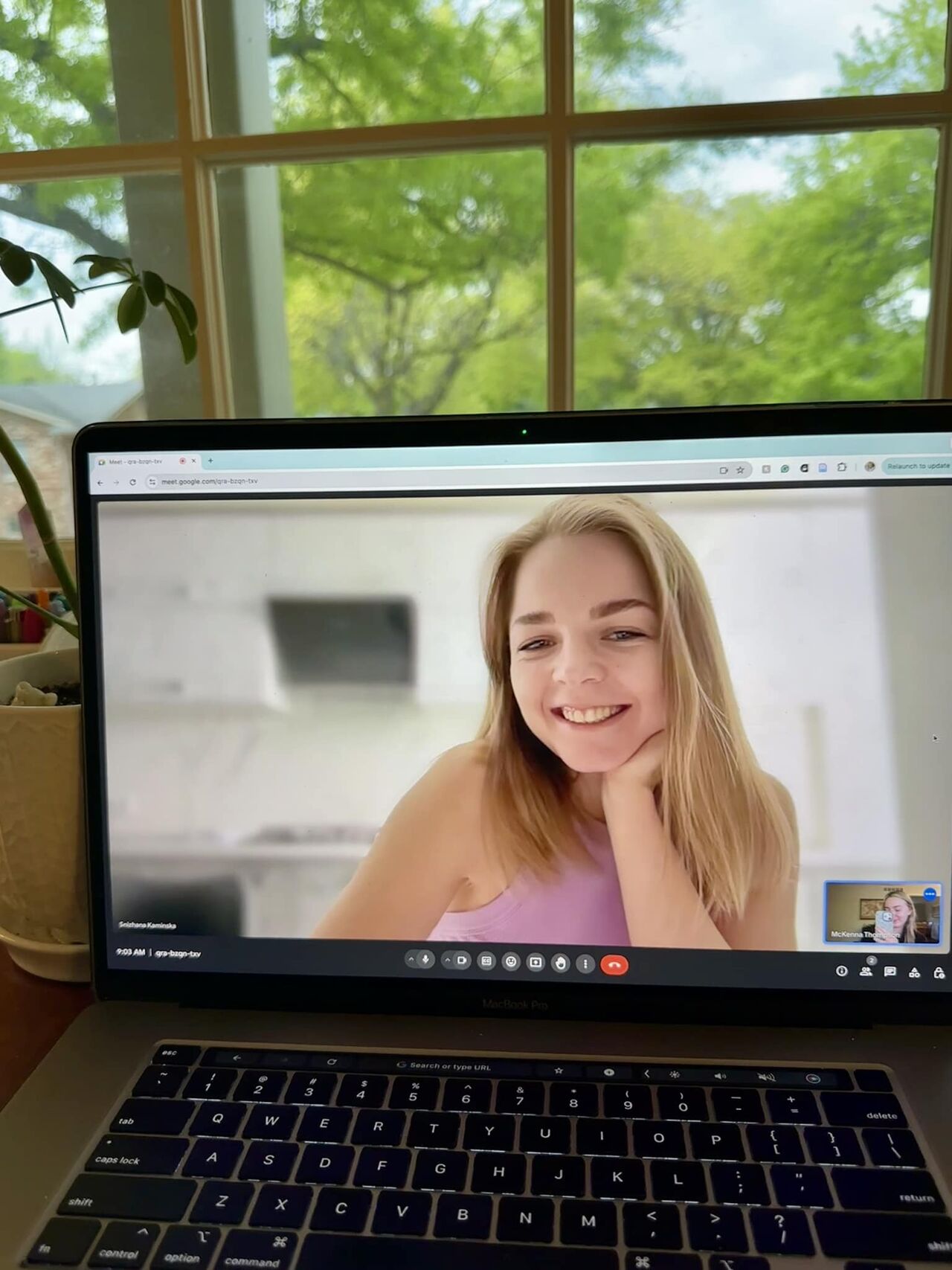
We often hear about learning lessons – but just as important is unlearning lessons. Have you ever had to unlearn a lesson?
I grew up as a Type A perfectionist. Top grades, perfect SATs, clean room, listen to every teacher – you get the drift.
After graduating college with highest honors, I tried to bring my high-achieving instincts to the workplace. And that’s when I realized the problem with perfectionism.
You see, in school, your workload is carefully calibrated by a teacher who is there to support you and wants you to succeed. But in the office, your workload is determined by a boss who is motivated to extract as much out of you as possible, regardless of the long-term effects. It’s not that your boss is evil (well, not usually); they themselves face pressure to produce from their bosses, investors, donors, clients, or partners.
Even when we become our own bosses, founders tend to push ourselves too hard. It feels imperative to get through that to-do list, hit those milestones, please that client. But when we do, there are more to-do’s, harder milestones, another urgent client crisis. So we run and run and run on our treadmills to exhaustion.
Early on in our careers, it may be possible to keep up. We usually have one boss – one set of expectations. Adult life is harder than college, but we generally don’t have kids or elderly parents relying on us. In my first jobs, I remained largely in that comfortable high-achiever mold. I had to stay late and work hard, but the work got done (usually) and the bosses were happy (mostly).
When I became a CEO, all that changed. The workload exploded. Rather than completing specific analyses or reports, my mandate was literally infinite – to run and grow my organization. I could fill 168 hours/week with relevant, important tasks. What’s more, rather than one boss, I had a full board and a long list of volunteers, investors, advisors, and colleagues making great suggestions for what else I had to do. A good number of these suggestions were contradictory, meaning that no matter what I did (or didn’t do), I’d upset someone. And unlike in my 20s, I now had two young children to raise and a house to take care of.
It took a long time for me to figure out this new professional landscape. Multiple nervous breakdowns were involved. But finally, I made peace with the fact that I would only ever get to a fraction of the to-do list – the trick was to determine which fraction mattered most. I realized that I would disappoint people, and some would hate me. I learned that at a startup – particularly at a nonprofit startup – resource constraints mean that perfection is usually impossible, and done is better than perfect. And that continues to be one of the most important lessons driving my work today.
Contact Info:
- Website: https://www.enginprogram.org
- Instagram: https://instagram.com/enginprogram
- Facebook: https://facebook.com/enginprogram
- Linkedin: https://www.linkedin.com/company/enginprogram/
